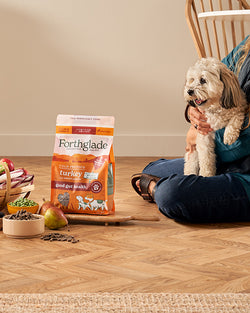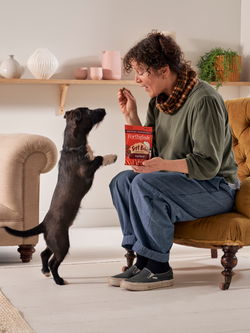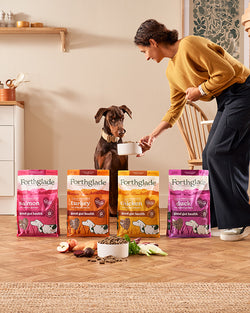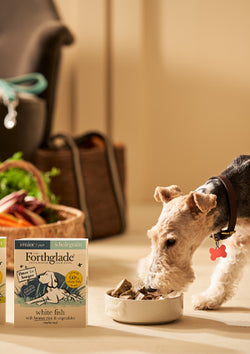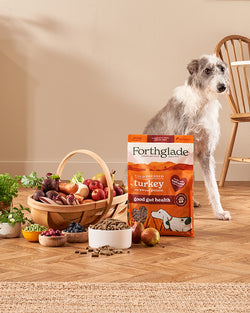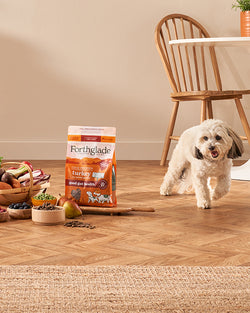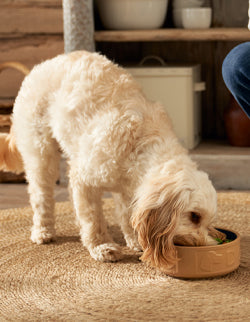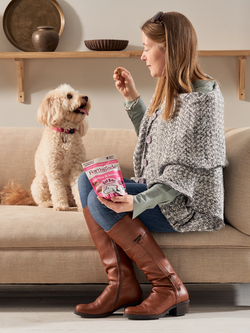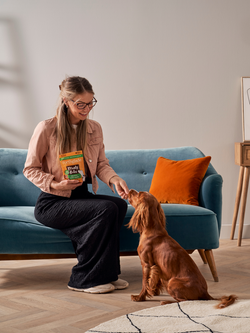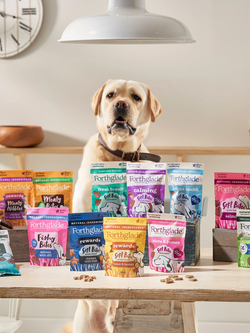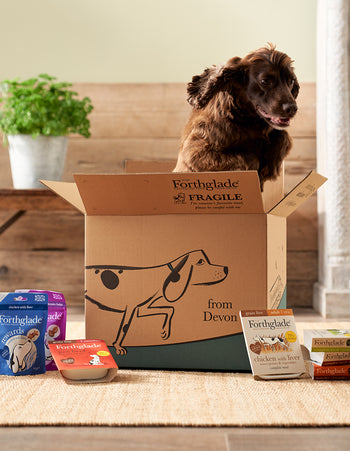Why is my dog being sick?
Just like humans, dogs can be sick from time to time, dog vomiting. Usually, the cause is not serious, such as when your dog has eaten too much or eaten something they shouldn’t, and these are easily treatable. Occasionally, it may indicate a more underlying health condition that you may need to speak to your vet about. To help you identify what’s going on, we’ve identified a few common causes for vomiting in dogs, as well as what to look out for and how to treat them.
Why is my dog vomiting?
Common causes of dogs vomiting include:
- Eating things they shouldn’t
- Eating too much
- Viral or bacterial gut infections
- Food allergy
- Inflammation of the stomach
- Heatstroke
- Eating something toxic
- Car sickness
- Worms
- Parvovirus
- Liver, kidney or pancreatic issues
Dog vomit colours: what do they mean?
The colour of your dog’s vomit is often a good indicator of what might be wrong and the things causing your dog to be sick.
Yellow or green vomit
Vomit of this colour is usually caused by stomach bile, often when their stomach is empty, or because your dog has eaten grass. Vomiting bile is rarely a cause of concern, but do contact your vet if it occurs frequently and excessively.
White foam
Vomit of this kind if usually caused by bloating or other gastrointestinal issues. It is best to contact your vet to identify what may be causing these issues.
Red vomit
Blood in your dog’s vomit can appear red if it is fresh – or black/brown (and may look like coffee grounds) if it has been partially digested. It is important to contact your vet immediately and let them know if there is a small or large amount of blood in your dog’s sick.
What to do if my dog is being sick
After your dog has been sick, there are a few things that you can do at home to help your dog feel a little better and recover.
Importantly, make sure that you allow easy access to water and that your dog is drinking frequently throughout the day to prevent dehydration.
A short period of time without food can also sometimes help, or alternatively, try giving them small amounts of food throughout the day. Foods such as plain boiled rice with chicken breast or white fish are effective bland foods that will be more easily digestible after a period of vomiting. Try not to give your dog anything rich or fatty as this can sometimes make things worse. Your dog may also lose their appetite for a bit, but once your dog has stopped vomiting you can try slowly reintroducing their meals again.
When to contact your vet
If your dog has only vomited once and seems otherwise find, you may not need to worry about visiting the vet. However, if your dog shows any of the below symptoms, it may be best to speak to your vet.
- Blood in their vomit
- If they haven’t stopped vomiting / are vomiting frequently
- Show signs of bloating
- Have other symptoms e.g. Seizures
- Are panting excessively
- If they are in pain
- If your dog has eaten a foreign object/been exposed to poison








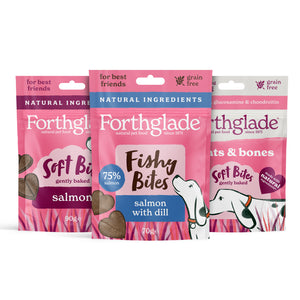



 FAST & FREE DELIVERY ON ORDERS £40+*
FAST & FREE DELIVERY ON ORDERS £40+*
 SUBSCRIBE TO SAVE 10% OFF EVERY ORDER
SUBSCRIBE TO SAVE 10% OFF EVERY ORDER
 OVER 13,600 5 STAR REVIEWS
OVER 13,600 5 STAR REVIEWS



